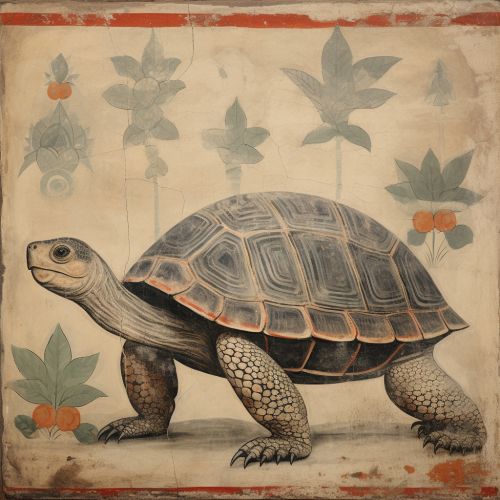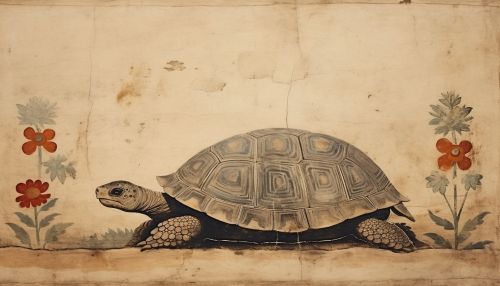Tortoise in Mythology
Introduction
The tortoise is a creature that has held a significant place in various mythologies around the world. Its slow pace, longevity, and hard shell have made it a symbol of wisdom, endurance, and invulnerability in many cultures. This article explores the role of the tortoise in different mythologies, its symbolic meanings, and its influence on cultural and religious practices.


Ancient Greek Mythology
In Ancient Greek mythology, the tortoise is associated with the goddess Aphrodite. According to one myth, when the god Hermes was born, he stole cattle from Apollo. To atone for his crime, Hermes created a lyre from a tortoise shell, which he gave to Apollo. This story not only illustrates the tortoise's association with music and art in Greek mythology, but also its role as a symbol of cunning and cleverness.
Chinese Mythology
In Chinese mythology, the tortoise is one of the four celestial animals, along with the dragon, phoenix, and tiger. It is associated with the element of water and the direction of north. The tortoise is a symbol of longevity, power, and tenacity in Chinese culture. It is also believed to carry the world on its back, a belief that is reflected in the Chinese word for tortoise, "gui", which means "return to the earth".
Hindu Mythology
In Hindu mythology, the tortoise is associated with the god Vishnu, who is said to have taken the form of a tortoise to support the churning of the ocean. This story, known as the Samudra manthan, is a pivotal event in Hindu cosmology. The tortoise's role in this myth underscores its symbolic association with support, stability, and endurance in Hindu culture.
Native American Mythology
In many Native American mythologies, the tortoise is a symbol of Mother Earth and is associated with longevity, endurance, and protection. For example, in Iroquoian mythology, the earth is believed to be situated on the back of a giant tortoise, a concept known as the World Turtle. This belief underscores the tortoise's role as a symbol of the earth, stability, and support in Native American cultures.
African Mythology
In various African mythologies, the tortoise is often portrayed as a trickster figure. For example, in Yoruba mythology, the tortoise is a cunning creature that often outsmarts other animals. This portrayal underscores the tortoise's association with wisdom, cunning, and cleverness in African cultures.
Conclusion
The tortoise, with its slow pace, longevity, and hard shell, has been a potent symbol in various mythologies around the world. Its symbolic meanings vary from culture to culture, ranging from wisdom, endurance, and invulnerability to cunning, trickery, and artistry. The tortoise's role in mythology continues to influence cultural and religious practices, underscoring its enduring significance.
